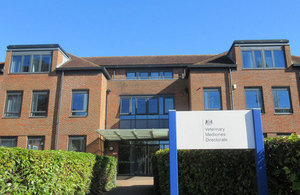A listening ear
Sellafield’s new chaplain, David Flitcroft is one person who’s ready to offer just that, only weeks into his new role.
I became the new Sellafield chaplain just a few weeks before coronavirus hit. Sellafield’s long had a chaplain service to those who need it – whether they are practicing Christians or not. But it had struggled to fill the vacancy created when the last chaplain left.
I discussed this with the Archdeacon. I am pleased to say that both he and the company supported this, and I have now started my role.
It’s a voluntary position, which I combine with my day job as a team leader in Security and Resilience.
When I started, I didn’t realise that coronavirus would come to impact on our lives as much as it has. This has meant things have been a little different. But it’s also a perfect opportunity to introduce myself to the workforce, and to encourage people to get in touch. I offer a listening ear to anyone.
Our aim is to be present to everyone and walk alongside all employees in the nuclear industry in West Cumbria, to encourage, support and offer pastoral care to those who need it.
There are already a number of fellowship groups that meet in the company, and this is great. These are a relaxed opportunity for people to come along and share their faith.
In fact, the Sellafield Workplace Chaplaincy is here for everyone in times of worry and anxiety. We don’t mind if you don’t go to church on Sundays, maybe you want to explore faith or you’re not quite sure what you believe. We welcome everyone.
All conversations are treated in the strictest confidence.
Practical support can range from informal conversations, to signposting to other services, and even things like attending medical appointments with you.
